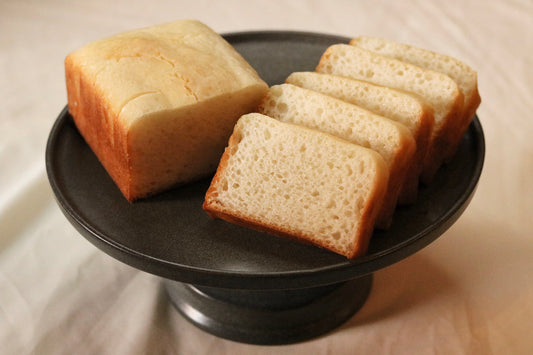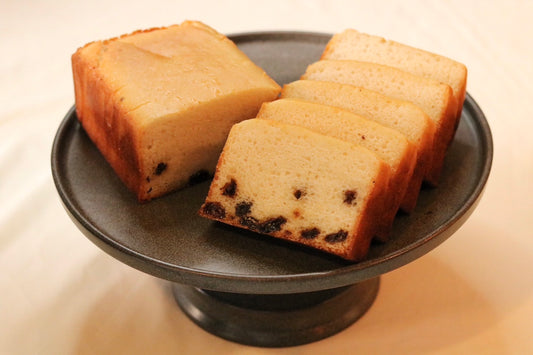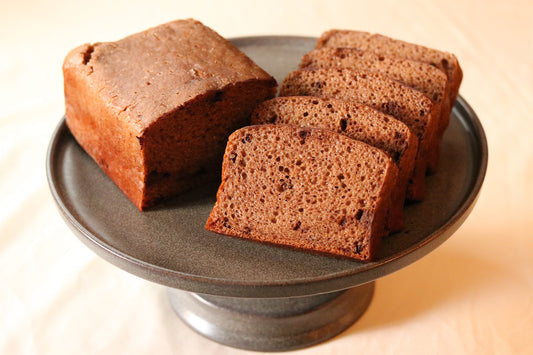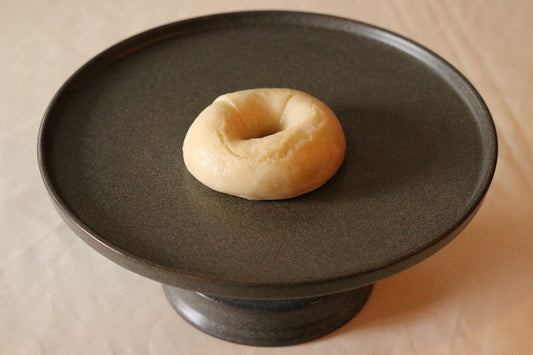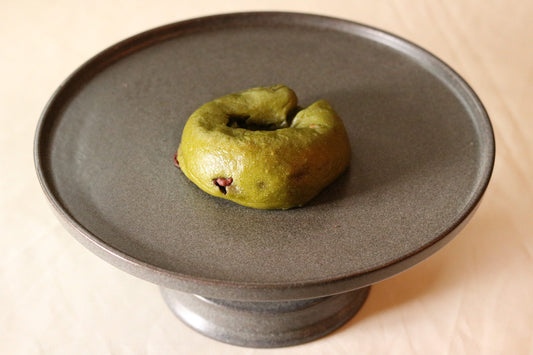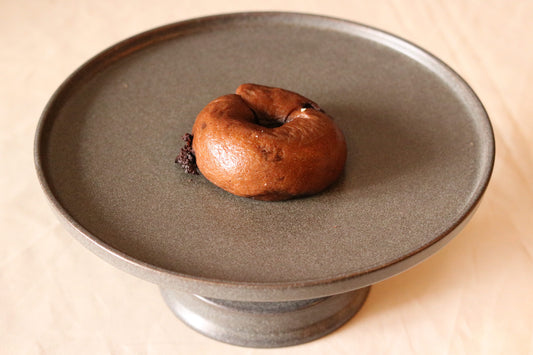Juwari soba is gluten-free and packed with nutrients
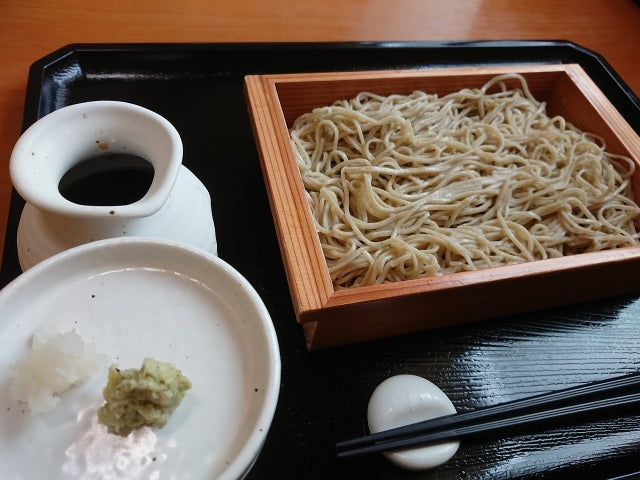
What is gluten-free?
What is gluten?

Gluten is a protein found in grains such as wheat, barley, and rye. Gluten is formed when two types of proteins, glutenin and gliadin, become entangled when flour is kneaded with water.
Gluten is what gives bread, pasta, noodles, and other foods their chewy texture and stickiness, and it also plays an important role in giving flour-based dishes their shape. However, gluten can cause health problems for some people.
Why gluten-free is gaining attention

There are two main reasons why gluten-free has gained attention in recent years. One is that gluten-related allergies and health problems have become a problem . The other is that an increasing number of people are avoiding gluten due to a growing focus on dieting and health . We will take a closer look at each of these reasons below.
Gluten-related allergies and disorders
Gluten can cause allergies in some people, causing symptoms such as abdominal pain, diarrhea, and eczema when they ingest gluten. In particular, people with an autoimmune disorder called celiac disease have an exaggerated immune response to gluten.
If people with celiac disease continue to consume gluten, it can damage the mucous membrane of the small intestine, which can interfere with nutrient absorption. Also, although not as severe as celiac disease, some people experience symptoms such as abdominal discomfort, headaches, and fatigue when they consume gluten. Even people with gluten sensitivity like this can sometimes see their symptoms improve by avoiding gluten.
Increasing diet and health consciousness
Another reason gluten-free is gaining attention is the growing trend toward dieting and health. Gluten is found primarily in foods made with wheat flour. Foods that contain a lot of wheat flour, such as bread, pasta, pizza, and cake, are generally high in calories, and eating too much of them is said to lead to abdominal fat gain.
For this reason, some people who are trying to lose weight avoid foods containing gluten. It is also said that by avoiding gluten, people will naturally consume more vegetables, fruits, and beans, leading to a healthier diet.
In fact, some people have reported losing weight and improving their skin condition by continuing a gluten-free diet. As such, an increasing number of people are beginning to believe that a gluten-free diet not only improves allergies and other ailments, but is also useful for dieting and improving health.
Gluten-free nature of 100% buckwheat noodles
Characteristics of 100% buckwheat soba

Juwari soba, as the name suggests, is soba made from 100% buckwheat flour . While regular soba noodles are often made by adding wheat flour or other binders to buckwheat flour, the unique feature of Juwari soba is that it is made only from buckwheat flour.
Buckwheat flour is made by grinding buckwheat seeds into flour, and is a pale grayish color. Buckwheat flour does not contain gluten , so it does not have the chewy texture of bread or pasta, but you can still enjoy the original flavor of buckwheat.
The appeal of 100% buckwheat soba is that it goes down smoothly and you can directly taste the flavor of the buckwheat because it does not use any binders. Buckwheat flour is also rich in protein and dietary fiber compared to wheat flour, making it nutritionally superior.
Gluten-free by not using wheat flour

The reason why 100% buckwheat soba is gluten-free is because it does not contain wheat flour. Gluten is a type of protein found in wheat flour, and it gives foods such as bread and pasta their elasticity and stickiness.
However, gluten can cause allergies and discomfort in some people. In particular, people with an autoimmune disease called celiac disease have an exaggerated immune response to gluten. If people with celiac disease continue to consume gluten, it can damage the mucous membrane of the small intestine, causing problems with nutrient absorption.
Also, although not as severe as celiac disease, some people experience symptoms such as abdominal discomfort, headaches, and fatigue when they consume gluten. Juwari soba noodles do not contain wheat flour, so they are gluten-free and can avoid gluten, which can cause allergies and ailments. Therefore, for those who are gluten-free, juwari soba noodles can be said to be one of the foods that can be eaten safely.
Certified gluten-free 100% buckwheat soba

Some foods that claim to be gluten-free actually contain gluten. This is because gluten can be unintentionally mixed in during the manufacturing process of the ingredients. For this reason, it is important for people who need to be gluten-free to choose foods that have been reliably certified gluten-free .
In Japan, the Japan Gluten-Free Association, a general incorporated association, has established a gluten-free certification system. Under this certification system, the standard is that the gluten content must be 20 mg or less per kg . In addition, to obtain certification, the manufacturing process and raw material management system are also subject to strict checks.
Juwari soba noodles that have been certified gluten-free can be said to be a food that people who want to avoid gluten can eat with greater peace of mind. In fact, there are some brands of juwari soba noodles that have been certified gluten-free. For example, "Shinshu Togakushi Soba," produced by a long-established soba restaurant in Shinshu, is juwari soba noodles that have been certified by the Japan Gluten-Free Association . In this way, by choosing juwari soba noodles that have been certified gluten-free, you can enjoy the flavor of soba noodles without worrying about gluten.
Nutritional value of 100% buckwheat noodles
Rich in protein and dietary fiber

Juwari soba is made from 100% buckwheat flour, so it is rich in protein and dietary fiber. Buckwheat protein contains a good balance of essential amino acids, making it a good source of protein .
Additionally, the dietary fiber contained in 100% buckwheat soba noodles contains both soluble and insoluble fiber. Soluble fiber helps slow the rise in blood sugar levels and lower cholesterol. Insoluble fiber increases the volume of stool and helps intestinal function. In this way, the protein and dietary fiber contained in 100% buckwheat soba noodles are essential nutrients for maintaining good health.
Rich in B vitamins and minerals

Juwari soba is also rich in B vitamins and minerals. Vitamin B1 in particular converts carbohydrates into energy and is an essential nutrient for carbohydrate metabolism . Vitamin B2 also helps maintain healthy skin and mucous membranes.
The minerals contained in 100% buckwheat noodles include calcium, iron, and zinc. Calcium is a nutrient necessary for the formation of bones and teeth. Iron is an essential nutrient for producing red blood cells, and helps prevent anemia.
Zinc helps maintain normal taste and is said to boost immune function. In this way, the vitamins and minerals contained in 100% buckwheat soba are important nutrients that support various bodily functions.
Contains polyphenols such as rutin
Juwari soba is rich in the polyphenol rutin, which is found in large amounts in the herb buckwheat tea, and is said to have antioxidant properties and help strengthen blood vessels .
Rutin also helps with the absorption of vitamin C, thereby enhancing the effects of vitamin C. The rutin contained in 100% buckwheat soba is heat-resistant and does not break down easily even when boiled. Therefore, by eating 100% buckwheat soba, you can efficiently ingest rutin.
Effective for dieting and beauty

Juwari soba is rich in nutrients such as protein, dietary fiber, vitamins, and minerals, making it effective for dieting and beauty . The dietary fiber contained in juwari soba makes you feel full, which helps prevent overeating .
In addition, dietary fiber slows down the absorption of carbohydrates, which helps prevent blood sugar levels from rising . These effects make 100% buckwheat soba a great food for dieters. Furthermore, the B vitamins contained in 100% buckwheat soba help maintain healthy skin.
Vitamin B2 helps maintain healthy skin and mucous membranes, while vitamin B6 promotes skin metabolism. Additionally, rutin contained in 100% buckwheat noodles has antioxidant properties and is expected to help prevent skin aging . In this way, 100% buckwheat noodles are an effective food for dieting and beauty.
How to eat 100% buckwheat soba noodles deliciously

How to choose the right soup and recipe variations
Choosing the right broth is important to enjoy 100% buckwheat soba. Because 100% buckwheat soba is made from buckwheat flour, it has a smooth texture and a stronger buckwheat flavor than soba made from wheat flour.
For this reason, a thicker soup goes well with 100% buckwheat soba. Using a thicker soup brings out the flavor of the soba. Also, while 100% buckwheat soba is delicious on its own, it can be made even more delicious by adding some variations. For example, adding tempura or vegetables to 100% buckwheat soba makes it a colorful and nutritionally balanced dish.
Also popular is "hiyashi soba," which is 100% buckwheat soba served chilled. Chilled soba is delicious when served with condiments in addition to the soup. Adding condiments such as shiso leaves, myoga (Japanese ginger), and green onions gives it a refreshing taste. In this way, depending on the choice of soup and how you arrange it, you can make 100% buckwheat soba even more delicious.
Sobagaki, galettes, etc.
Juwari soba can be used not only as soba noodles, but also for sobagaki and galettes. Sobagaki is a dish made from kneaded buckwheat flour and is characterized by its chewy texture. Sobagaki is delicious on its own, but it tastes even better when served with soy sauce and grated daikon radish.
Also, when sobagaki are deep-fried, they become "sobagakiage" which has a crispy texture. On the other hand, galettes are a local dish from the Brittany region of France, and are similar to crepes made with buckwheat flour. Galettes are typically filled with ingredients such as cheese, ham, and vegetables. Galettes made with buckwheat flour have a different flavor to crepes made with wheat flour. In this way, you can enjoy a variety of dishes made with buckwheat flour, including sobagaki and galettes.
Gluten-free dishes made with buckwheat flour
Buckwheat flour does not contain gluten, so it can be used in gluten-free dishes. For example, pancakes made with buckwheat flour have a different flavor than pancakes made with wheat flour.
Cookies and cakes made with buckwheat flour also have a crispy texture. Gluten-free dishes made with buckwheat flour have a different flavor than dishes made with wheat flour, so they are recommended for people who are gluten-free .
Arranged dishes using 100% buckwheat soba
There are many different dishes that use 100% buckwheat soba. For example, "soba pizza" is made with 100% buckwheat flour dough and topped with cheese, tomato sauce, and other ingredients before being baked.
Also, "soba risotto" made with 100% buckwheat is a dish where soba is cooked like risotto, and the addition of butter and cheese gives it a rich flavor. Furthermore, "soba gratin" made with 100% buckwheat is a dish where soba is placed in a gratin dish, topped with white sauce and sprinkled with cheese, and baked. In this way, dishes using 100% buckwheat allow you to enjoy a variety of flavors while making the most of the flavor of soba .
summary

Juwari soba refers to soba noodles made from 100% buckwheat flour. Because it does not contain wheat flour, it is gaining attention as a gluten-free food. Juwari soba noodles are rich in nutrients such as protein, dietary fiber, B vitamins, minerals, and rutin, making them a healthy food .
Juwari soba is characterized by its smooth texture and strong buckwheat flavor. Depending on the choice of dipping sauce and the way it is prepared, you can enjoy a variety of flavors . Dishes made with buckwheat flour, such as sobagaki and galettes, are also popular.
For those who are gluten-free, 100% buckwheat soba is one of the foods that can be eaten safely. It is a recommended food not only for those with wheat allergies or gluten intolerance, but also for those who want to lead a healthy diet.
Gluten-free rice flour can be purchased online from "Komeko's Palette"

For those looking for gluten-free foods, we recommend the online store "Komeko's Palette ." Komeko's Palette is committed to providing healthy, safe, and delicious products that are "completely additive-free," "wheat-free (gluten-free)," and "refined sugar-free. "
[Palette's Commitment]
Commitment to completely additive-free
At Palette, all of our products are completely additive-free. We don't use any food additives and create products that value the natural flavor and nutrition of the ingredients. We carefully prepare each product so that it can be enjoyed safely by everyone, from children to the elderly.
Commitment to wheat-free
At Palette, we do not use any wheat in any of our products. We place great importance on creating products that can be safely consumed by those on a gluten-free diet or those with wheat allergies. Instead of wheat, we use nutritious rice flour and other natural ingredients that are gentle on the body . We strive to create a taste that is delicious even without wheat, with a moist texture and efforts made to bring out the flavor of the ingredients.
Commitment to no refined sugar
Palette does not use any refined sugar. To avoid a sudden rise in blood sugar levels, we use natural sweeteners such as beet sugar and cane sugar, rather than highly refined refined sugar. The natural sweetness brings out the flavor of the ingredients themselves, creating a mellow and deep taste.
We are committed to using manufacturing methods that do not use refined sugar, as we want to deliver sweets and foods that are not just sweet, but also healthy and can be enjoyed every day with peace of mind. With Komeko's Palette, you can safely purchase gluten-free and rice flour products. If you are looking for healthy and delicious foods, be sure to check it out.
Gluten-free rice flour bread can be purchased online from "Komeko's Palette"
